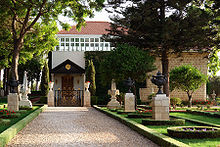
Bahá'u'lláh
1817-1892 IR, Tehran
A.k.a. Mírzá Ḥusayn-`Alí Núrí
Founder of the Bahá’í Faith. Born in Tehran, Iran, on 12 November 1817, He was the son of a prominent and wealthy government official from the province of Núr. He became a follower of the Báb in 1844 and the preeminent leader among the Bábís after the Báb was executed in 1850. Tortured, imprisoned, and then exiled to the Ottoman Empire, Bahá’u’lláh declared to a small group of disciples in Baghdad in 1863 that He was the Messenger of God whose coming the Báb had foretold. During the next three decades, He was further exiled to Istanbul (Constantinople) and Edirne (Adrianople) in Turkey, from 1863 to 1868, and finally sent as a prisoner to Acre in Ottoman Syria (present-day Israel) for the remainder of His life. Bahá’u’lláh wrote extensively on a host of topics, producing a body of scripture that forms the basis of the Bahá’í Faith. Still a prisoner, He died on 29 May 1892 and was buried at Bahjí. His eldest son, 'Abdu'l-Bahá, whom He chose as His successor, served as the Head of the Bahá’í Faith after Bahá’u’lláh's passing.
